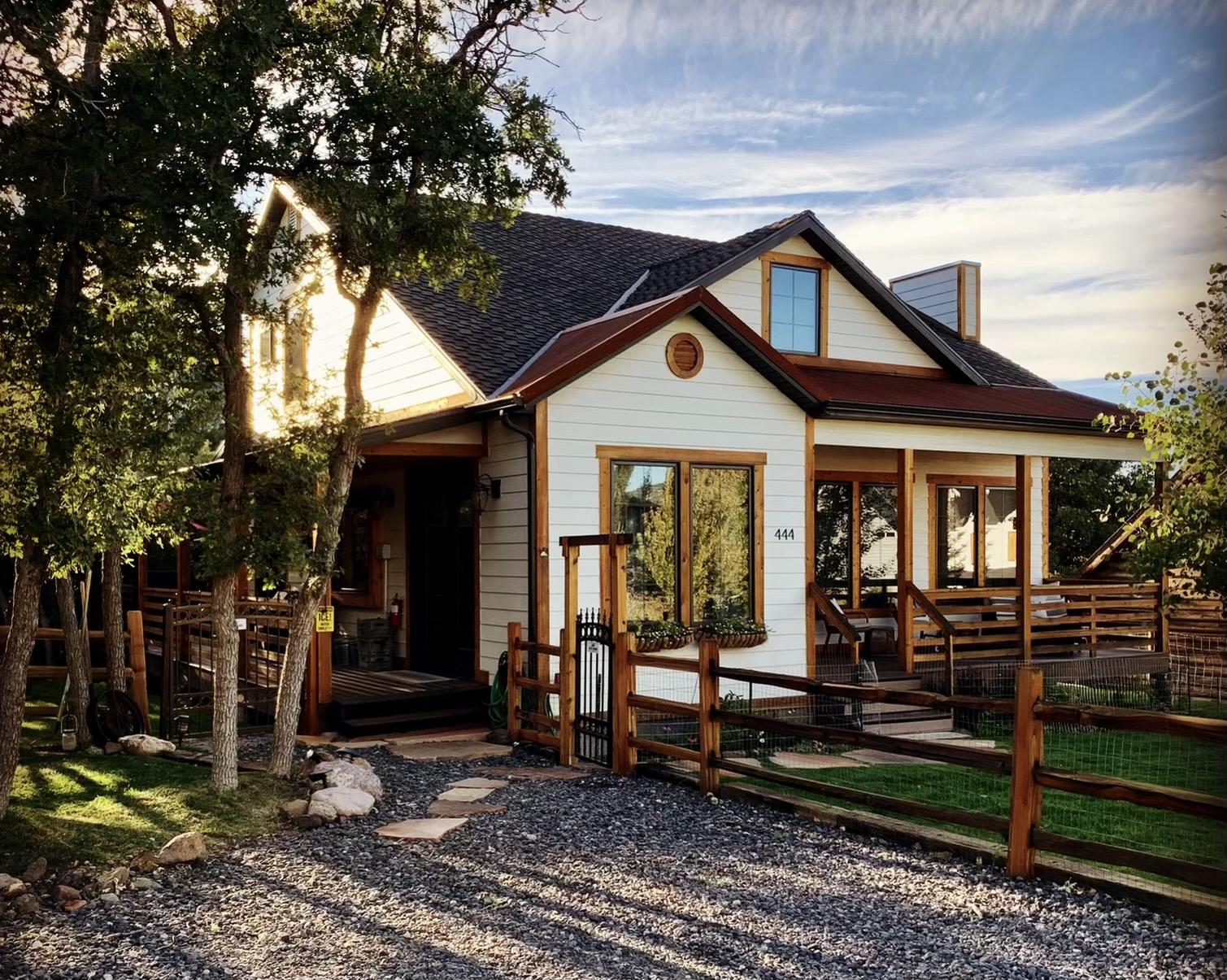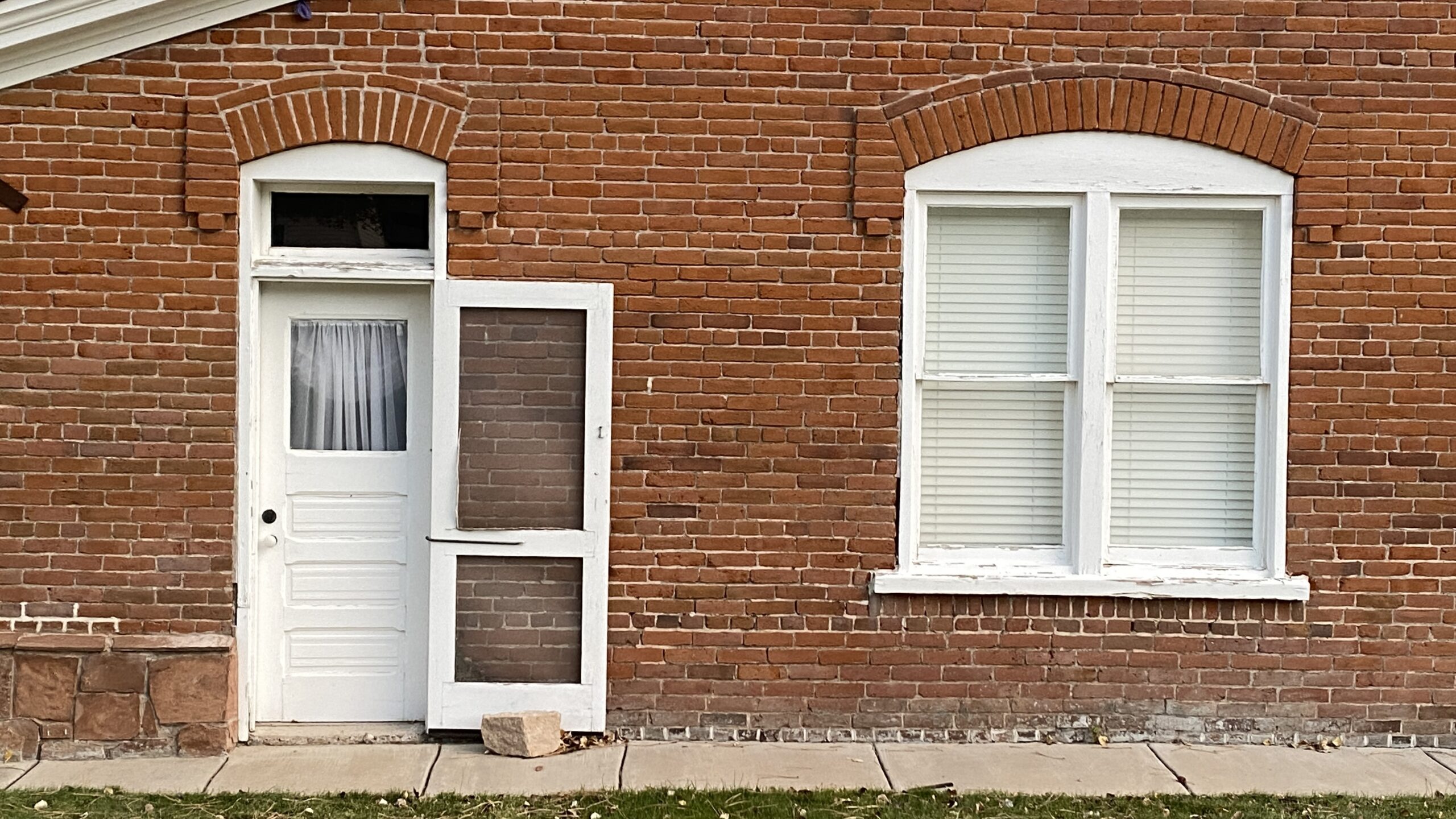
ST. GEORGE — Property owners in Pine Valley are trying to make sense of the short-term rental ordinances passed by the Washington County Commission in early October.

The new ordinances require property owners who operate short-term rentals to meet new requirements, which includes a mandate that absentee property owners must have a local property management company overseeing their property.
They also must post signs on their units identifying the property owner and a phone number for a property manager who is available 24/7, and they must have off-street parking available for vacation renters.
These new requirements, property owners who spoke with St. George News said, may not be viable for all property owners and may even unfairly punish some. While one family earns their living via their short-term rentals, for instance, another earns just enough to make ends meet.
The Sullivans: Striking a balance between business and community
Sullivan said she and her partners – her husband and her sister – earn the lion’s share of their livelihood from short-term rentals. Sullivan ran a successful short-term rental business in Park City in northern Utah. The idea to run her own short-term rentals, she said, came to her in 2003.
“My sister and I booked a short-term rental in Park City for a change of scenery,” Sullivan said. “We liked the idea that we could stay in a unique home almost anywhere in the world. And we wanted to provide that service for travelers looking for an alternative to hotels.”

So she and her sister bought and managed eight short-term rentals in Park City. In 2015, they decided to move to Pine Valley to be closer to family. They sold off their Park City properties and then bought property in Pine Valley. One of those properties, Sullivan said, was an “eyesore on Lloyd Canyon.” They tore down a double-stack trailer and built in its place a small cottage that sleeps six.
Since then, the Sullivans have made their living by renting out their three short-term rentals. But, Sullivan said, it has always been important to balance business with the needs of the community.
“That’s why we try to keep our business and our properties small,” she said. “We don’t want the wear and tear of partiers, and we don’t want 30 vehicles spilling out into the streets.”
Sullivan said that she has three of the five current short-term rental business licenses on record in Pine Valley, so her operation will be grandfathered in, per the new ordinance. But Sullivan wondered whether the ordinances passed by the Washington County Commission are out of touch. Especially for those property owners who do not live on the property year-round and may be trying to offset the costs of their homes.
“To have that source of revenue suddenly taken away,” Sullivan said, “that’s got to sting.”
The Smiths: Trying to break even
Joseph and Katie Smith dreamed of owning a property in Pine Valley, as Katie’s parents had for as long as she can remember.

Joseph Smith is the director of human resources at the Tuacahn Center for the Arts, while Katie is the Artistic Director of Southwest Dance Company. Their dream came true when they bought the Red House on Main Street.
“We’ve enjoyed our second home for years,” Joseph Smith told St. George News. “We were excited when Katie found a way to bring in some extra income, which would go a long way towards helping to pay our property taxes, as well as the summer water bill.”
But Katie Smith said that, though she’s put a great deal of time and effort into building a steady, viable clientele, she does not have a business license. AirBnB, Smith noted, pays taxes on hosts’ behalf.
“We’re not slammed with business,” she said. “We’re not making a ton of money. But what we do earn really helps us to break even each year.”
To that end, Smith said she worries that one bad apple may ruin the bushel. She’s had only one bad guest, which she reported to AirBnB. For its part, AirBnB may ban certain guests who egregiously violate their policies. For minor infractions, a negative review from a property owner like Smith often suffices to warn future hosts of consistently problematic guests.

“We have rules and guidelines,” Smith said. “We don’t allow parties or unruly guests, who we vet before renting to them.”
The irony, Joseph Smith added, was that the county commissioners often tout the importance of property rights, while they pass these ordinances that compromise those values.
“It feels like we’re all being punished for one or two bad cases,” Joseph Smith said. “Whatever happens, we’ll figure it out. But my wife has built a good little business, and it may be gone. I just wish that wasn’t the case.”
Additional perspectives
Washington County Commissioner Gil Almquist said that the county is in the early stages of a feasibility study to determine how the ordinance will affect property owners and their communities. Still, he said he didn’t feel much sympathy for property owners who are operating small businesses without a license.
“We want to explore ways to ensure that the laws we pass are equitable,” Almquist told St. George News. “But if you’re generating profit, you’re running a business. And business owners must get a business license.”
Almquist pointed to a time in 1984 when his small landscaping business was beginning to take off.
“I could have chosen to fly under the radar,” Almquist said, “but I decided to get my license.”
“If you forget to get a license,” he continued, “we can’t help you.”
Author, educator and hospitality consultant Julie Davies agrees with Almquist about the need for short-term rental hosts to have business licenses and that they be subject to code compliance. But she said that the current ordinances are based upon flawed information.
“Which,” Davies told St. George news, “may have come from AirBnB.”
“We’ve got to remember that AirBnB is a reservations service provider,” Davies continued. “They act as though they do everything for you, but they don’t. They are not responsible for remitting taxes to the proper entities, and they do not include licenses when you sign up to host your homes.”
Ultimately, Davies said, if property owners are doing the right thing, if they’re not disturbing their neighbors or the community, they should be allowed to run their short-term rentals. That doesn’t mean they can do whatever they feel like, just because they own a property, she said. To Davies, there’s no such thing as “passive income,” because property owners and managers “need to be proactive in ensuring that they are up to code.”
“The county needs to strike a balance between passing reasonable ordinances, which will make it possible for the good hosts to get their licenses,” she said. “This is an emerging industry that needs to be regulated, but the current regulations are unreasonable.”
“They will lead to good hosts getting out of the game,” she added. “Then their booking calendars will go to bad hosts who are operating under the radar. That’s bad for business and the community in the long run.”
Copyright St. George News, SaintGeorgeUtah.com LLC, 2021, all rights reserved.